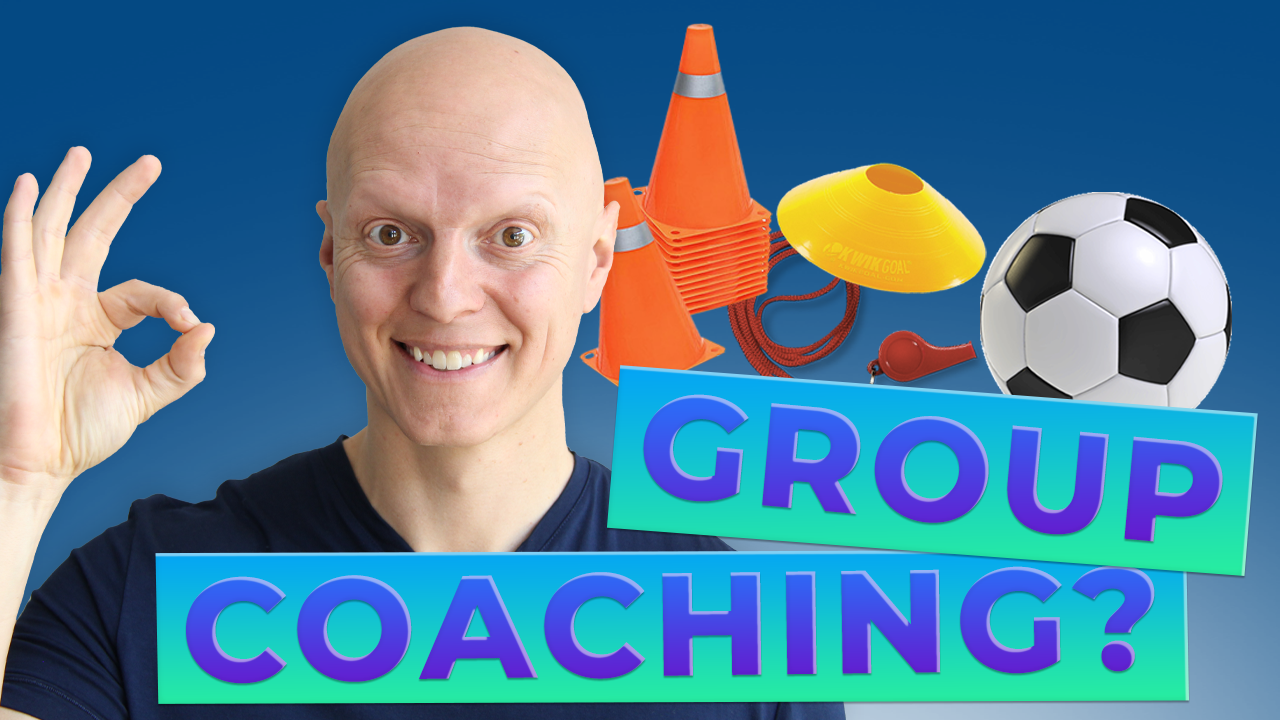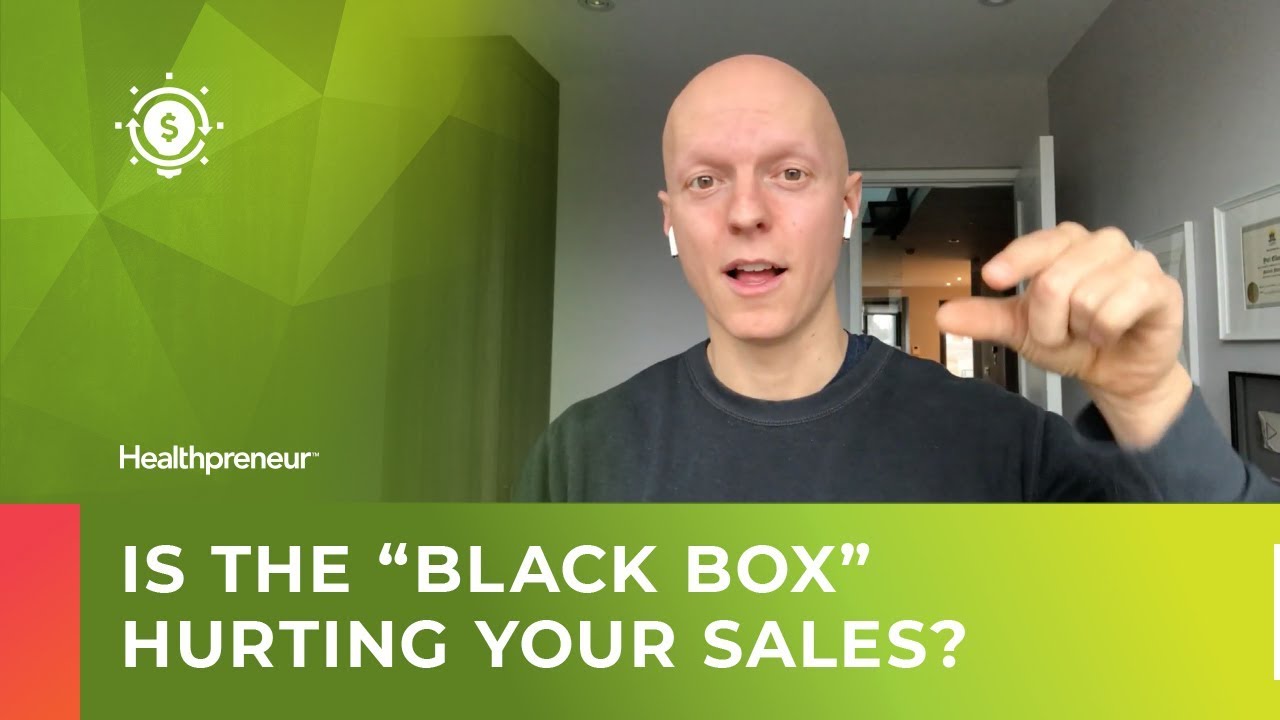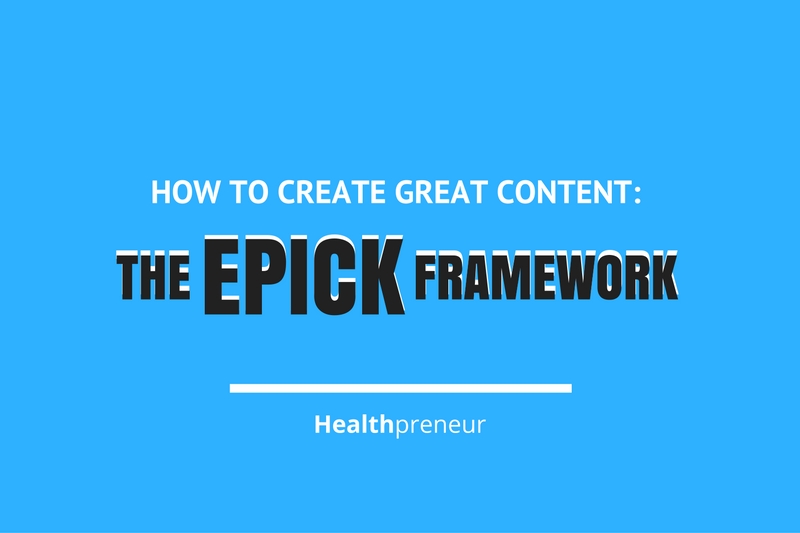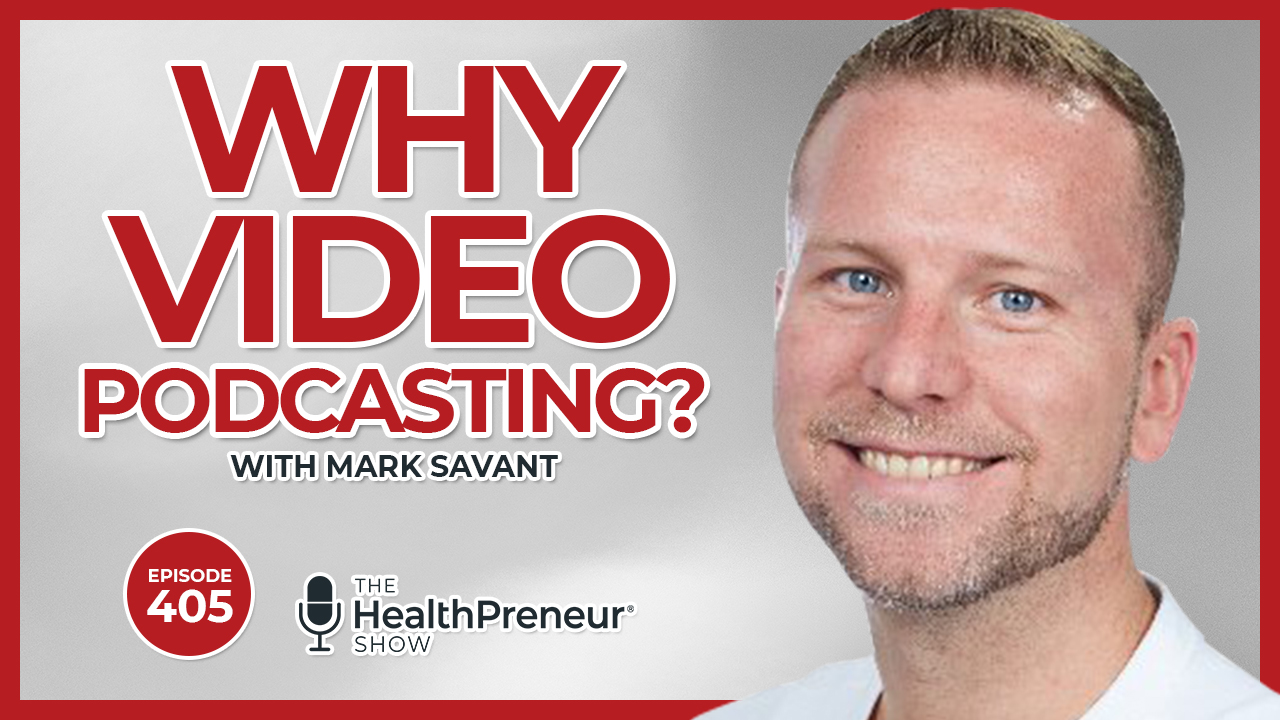How to Niche Down and Find Your Target Market
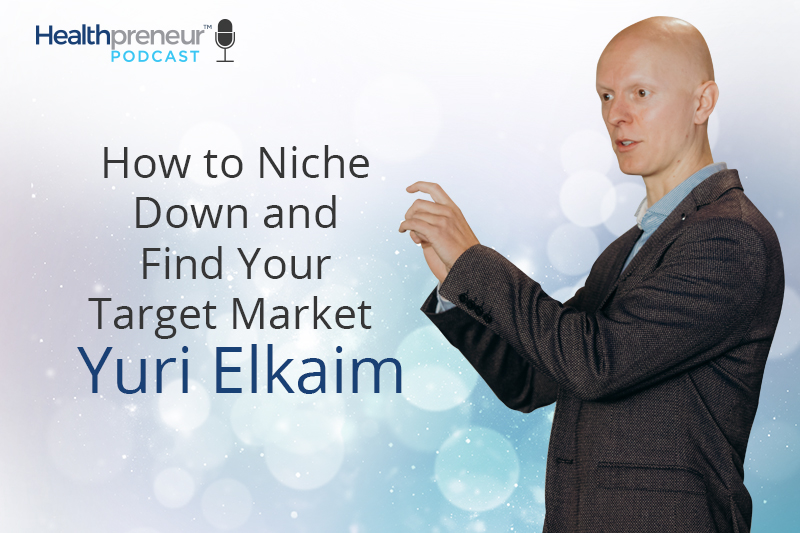
We’re back at it on the Healthpreneur podcast! Welcome! Today’s topic is a tough one. I’m going to be talking about how to niche down and find your target market. This question comes up often, and it can be difficult not to try and be everything to everyone.
The truth is, there’s a lot of people doing what we do. But you can do it better if you hone in on who you want to work with. If you focus on them and their specific needs, the people you want will be attracted to you. Then, you can specialize your product and offer it to groups that have the same problem.
This episode, I’ve got some questions for you that’ll help you narrow down your niche and target market. Why? Because you can’t be everything to everyone, and if you don’t niche down, you’ll be nothing to no one. So, listen in and grab a pen because it’s time to start 2019 with a bang!
In This Episode I discuss:
1:00 – 3:00 – Why it’s important to zero in on your perfect client
3:00 – 5:00 – How we help our clients find their target market
5:00 – 9:30 – The questions to ask yourself to find your niche and target market
9:30 – 13:30 – Client examples and why niching down works
13:30 – 15:30 – A summary
Transcription
Healthpreneurs, what’s going on? Welcome back to 2019. Hope your year is off to a great start. Ours is off to a flying start, it’s going to be an amazing 2019. I have no doubt it’s going to be an amazing year for you as well.
Why it’s important to zero in on your perfect client
In today’s episode, I want to talk about how to niche down and find your target market. This is a question that comes up often enough that I think it’s important to discuss and this is something that we actually … It’s actually one of the first things we walk our clients through in our Health Business Accelerator workshop because it is so important to understand and to zero in on who your perfect client is because nothing else in your marketing really matters until you have that clarity, because you can’t put a message out to an audience if you don’t know who you’re speaking to. If you try to be everything to everyone, you’re really going to be nothing to nobody.
We know that it’s a super competitive space, there’s a lot of people doing what we do, a lot of people doing what you do, and not that that’s a bad thing, it’s actually a good thing because it shows there’s a huge demand for your expertise in the marketplace, but it really helps if you can occupy a specific drawer in someone’s mental cabinet. When they think of underwear, they think of this drawer. When they think of mental health, they think of you. When they think of weight loss, they think of someone else.
Part of this is really identifying who you want to work with and the way that we help our clients through this whole process is first and foremost, we’re really helping them build out group coaching programs. Not one on one because if you’re doing a one on one coaching type of business, you can technically work with a lot of different people. Some people come in for this, some people come in for that, you have all sorts of different protocols, all sorts of different clients.
How we help our clients find their target market
You cannot scale that type of business because there’s no systemization, there’s no leverage. When we’re working with our clients what we do is … The first thing is we help them identify if you only had to pick one issue or problem that you can solve, what would that be? Okay, so I want to help people or I want to help men with back pain. I want to help men who have back pain get back to moving freely again, so that’s the target market as an example. The beautiful thing about that is that when you’ve identified one niche target market, now you can work with an infinite number of clients at the same time because they’re all following the same protocol.
That’s why a group coaching program is so powerful because not only is it beneficial for you because you can take on more clients without extra work, but it actually is better for everyone involved because now they’re surrounded by other people who are on the same path and they have that comradarie, they have that kind of accountability to the other people in the coaching group, which is really, really powerful because it’s not the same if you have some people with back pain and then you’ve got women who are going through menopause. It’s just very disjointed and you can’t have a group with that type of variety.
The first thing we want to do is we want to narrow down, really figure out what is the one pain or problem that you’re amazing at solving and you’re probably great at doing a lot of things but you want to really … If you want to simplify and scale your business, you have to identify this one target market. Now we’re saying this one target market for now. It doesn’t mean this is the only group of people you can serve until the end of time, but the thing is you have to drill oil in one place and hit oil first before you start drilling oil somewhere else.
We want to really get this dialed in with one target market, one protocol, one methodology, one program, that you’re going to work with people and create an amazing outcome for, then down the road if you ever wanted to move into a slightly different target market and have the initial program running with some coaches that are working in your company, you could do that if you wanted to. You’re not handcuffed for the rest of your life, but if you were, who would you want to work with?
That’s the second question. The first one is okay, what’s the major main or problem that you’re great at solving, that you can create an amazing outcome for your clients in that specific area? The second thing is if you only were able to work with one group of clients, who would they be? Right? Who would be the one person that you would want to work with for as long as possible, not necessarily with that specific client but as a cohorts, you want it to be thee person specializing in back pain and you can see that being the next 20 years of your life, right? Not the next two months.
This is something you really feel passionate about. Like I have no interest in helping business owners in general. Yeah, I love entrepreneurship and I love helping entrepreneurs in general, but I only want to build a business around helping health and fitness and wellness experts because that’s where we can make the biggest impact and that’s where I really believe there’s a huge amount of opportunity because you guys are just incredible at what you do and people are always going to have health issues. If we can help you build something amazing with your business, then you can help more people and collectively everyone wins.
We only want to work with health and fitness and wellness experts and that’s why we’re the leader in the industry for this market. If we did what we did with agencies, internet marketers, realtors, accountants, now we’ve diluted our brand tremendously and so we don’t want to do that and I don’t recommend you do that either. Be the leader, be the big fish in the small pond if you will. Figure out what that pond is, who that target market is that you really want to work with. That’s the second thing.
The questions to ask yourself to find your niche and target market
Third is asking yourself this question and this kind of ties the first two together, if you only got paid after your client got a result, who would be your best clients to work with? This is an interesting question because if you think of a realtor, a realtor gets paid after they sell your house, right? They get a commission, they don’t ask for the commission ahead of time. Can you imagine that? Here, I need a check for $50,000 before I sell your house. Um, no I don’t think so. But if you think about the way we run our businesses and most businesses are run like this, it’s like give me the money first and then I’ll help you get the results. It’s kind of weird, it’s kind of backwards, right? But that’s just the way it is.
But I want you to think about this for a second. If you were a realtor in your business and you only got paid one you “sold your client’s house”, who would the best client be for you to work with? This could mean what criteria does that client have to have. What traits, what qualities, where are they in their journey? For instance, with Healthpreneur we serve two very distinct clients. First is we can help people go from zero to hero in a very short amount of time. The most important thing for us to work with is somebody who has deep expertise, because if you don’t have deep expertise and you can’t really help someone, you can’t charge premium prices and you can’t really run the system.
People who have like an interest in health and they got in shape once and now they just want to help other people do the same, listen, unless you’re like amazing at what you do, you know we really can’t serve you, but if you’re great at what you do and you just want to be able to go from where you are to the next level, then we can certainly help you. The second client is someone who’s obviously more advanced. Someone who has an established business who is looking for that next thing to unlock the next level in their business.
We could say well we know that we can get a result for our clients faster if they’re a bit more established and more advanced in their business. We know that but we also know that we can help people who are just starting out, assuming they have that expertise. We are willing because we want to become a dominant Nike like brand in the world for our industry, we are willing to help people from zero to hero, not just those who are already established. We want to really help people get off the ground and build something amazing so that they’re coming out of health coaching schools or a professional practice and they’re able to build something substantial in a short amount of time compared to following all the ridiculous internet marketing advice.
Client examples and why niching down works
As an example, one of our clients is Chris Kresser, who you probably know, one of the leaders in the health space. This is the difference, okay? He joins the program, within two weeks he’s done everything. He’s got everything done, within two weeks. He’s got his perfect client pipeline pretty much built out, two weeks, and that’s because he kind of gets this already. He has a bit of a team around him to support him in this stuff and he’s able to deploy and execute a lot faster. Someone who is completely brand new and again, not everyone is like this, but some people they go through all that limiting mindset stuff, the beliefs, the self doubt, all that kind of stuff, and it’s taken them three, four, five, six months to get all this stuff done.
What’s the difference? Well, there’s obviously a difference of the individual and the mindset but there’s also a difference in experience and infrastructure in resources. In your business, you have to consider do you want to serve people who may take a lot longer to get a result or do you want to work with people who are just like hey, if you do this, I’m going to get this done, it’s all going to be great. When you’re looking at let’s say helping people lose weight, do you want to work with people who are 500 pounds who don’t see the value in exercising and eating well or do you want to speak to people who are kind of already there but just need that next little … They need that extra, that nudge, that coaching and accountability.
There’s no right or wrong answer. You just have to decide for your business what is going to make the most sense, and just understand that whichever one you choose is going to come with a certain cost if you will. We know the cost of working with people from scratch is going to be a little bit more hard work for us, more coaching, more time involved, all that stuff, but we also know that if we don’t serve that market, there’s only a small, small sliver of an already small market that we can tap into.
Now in your case, the health and fitness demands and desires of the general population is infinite. Like there are only so many people who are looking, who are entrepreneurs, in the health space, right? But every single human alive is going to deal with health issues, they’re too overweight, they’re too tired, so you have a market that is infinite. When you’re choosing who you want to work with, you need to really discern man like which clients would probably do the work? Which clients if I gave them the stuff to do would show up on the calls, would do the work, would get the results, and you need to really be clear about that because if you start attracting the wrong people it’s going to be tough.
But here’s the beautiful thing, premium pricing is a great filter because you’re not going to get people coming into a program who aren’t ready to do the work. One of our clients, Elaina, if you’re listening to this, you’re awesome, she is now charging $6,000 to work with her clients or for her clients to work with her, and that’s amazing because she’s now going to be attracting people who are highly, highly motivated to get results.
Believe me, I’ve had a lot of backlash about premium pricing. It’s hilarious how so many people are so opposed to premium pricing, how dare you charge more? People should have free healthcare. I’m like listen, don’t be a lunatic, there’s free healthcare if you live in Canada so just calm down for a second, but the reality is that it doesn’t do anything. We see what the healthcare system is and it’s not really helping and we know that when you pay, you pay attention.
What I’m pumped about with our clients is that they’re able to charge more. They’re not going to be able to help everyone obviously, but here’s the thing is that when you’re working with clients who are paying you $6,000, do you have more income? Do you have more disposable income? Do you have more profit that gives you more breathing room and wiggle room where you can now give away a lot of other stuff for free? Absolutely. Nobody benefits from you being poor, right?
Like on a plane, you put your gas mask on before someone else’s. If you don’t take care of your business first, nothing else matters so if you think you’re being noble by charging $10 an hour or giving away $10 e-books, you’re not, it’s a disservice to people so I’ll save that for another episode. We’ve actually talked about this in the past but anyways, so these are the three things I want you to consider with respect of niching down and being the go to person in your target market.
Number one, what’s the major pain or problem you can solve? Number two, who would you want to work with, like if you’re just like hey, I really enjoy working with these types of people? Then three, if you only got paid after getting a result, who would be the best client for you to work with? Okay? Now again, that’s just kind of a brief brush stroke of how to niche down and find your target market. We have some really great thinking tools and exercises that our clients use to really narrow things down and build out their program based on that and the key thing here is that once you’ve identified this perfect client, everything else is so much easier.
Like you understand. We have a process called the Emotion Inventory, you understand what makes these people tick so when you put a Facebook ad in front of them, they’re like oh my God, this is me. When they’re watching a webinar, they’re like oh my God, this person is in my head. When you have that, man like your business is set and it all starts with your perfect client and really identifying who that is.
A summary
Anyways, if you want help with this and if you want our help to really help you niche down and get targeted and build a business around a specific group of clients, the first step is to watch our seven figure health and business blueprint training.
It’s over at HealthpreneurGroup.com/training. Watch it today. If you like what you see and it resonates with you, then at the end of the training you’ll be able to book a call with us and we’ll jump on the phone and see how we can help you. Sound good?
That’s all from me today. I hope you’ve enjoyed this episode. Remember, niche down, get that target market dialed in, and everything else in your business will flow from there. I’ll see you soon.
If you enjoyed this episode, head on over to iTunes and subscribe to Healthpreneur™ Podcast if you haven’t done so already.
While you’re there, leave a rating and review. It really helps us out to reach more people because that is what we’re here to do.
What You Missed
In the last episode, I had the Master of Instagram marketing, Jason Maxwell.
If you want to learn how to DOMINATE Instagram, you’ll definitely want to tune in.
Instagram is the most powerful social platform and when it comes to Instagram marketing, Jason is a master.
You’ll want to grab a notebook, take a seat, and tune in to get some advice that’ll be actionable immediately.
Related posts
November 17, 2016
How to Create Great Content: Introducing the “EPICK” Framework
How do you create epic online…
April 15, 2021
Growing Your Business With Video Podcasting with Mark Savant
Mark Savant, a media expert with…


